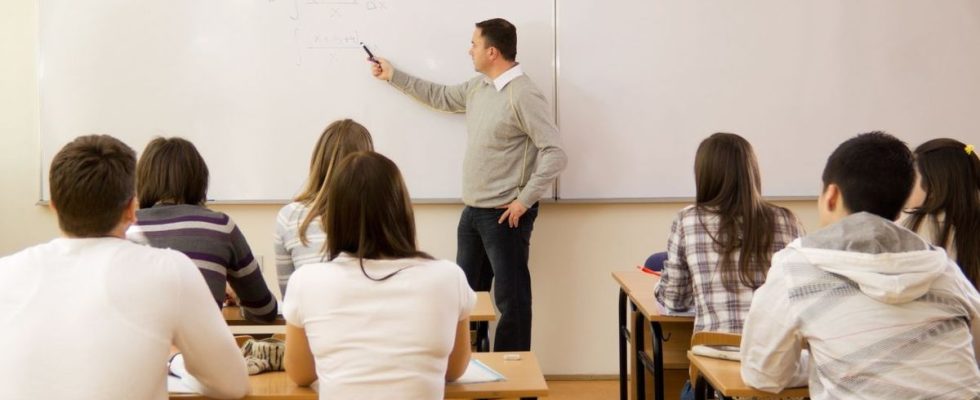It’s hard to know what studies you want to do when you’re 15. And yet, you must already have a vague idea or at least know your favorite areas. Because at the end of the year in high schools, each second student will have to choose three specialties for the first class and his final classmate will have to eliminate one to keep only two. Here are some tips for making informed choices and having no regrets!
What are the different specialties?
There are thirteen specialties: Arts, History-Geography, Geopolitics and Political Science (HGGSP), Humanities, Literature and Philosophy (HLP), Languages, Literature and Foreign and Regional Cultures (LLCR), Literature, Languages and Cultures of Antiquity ( LLCA), Mathematics, Digital and Computer Sciences (NSI), Physics-Chemistry, Engineering Sciences, Life and Earth Sciences (SVT), Economics and Social Sciences (SES), Biology-Ecology (only in agricultural high schools) and Physical education, sports practices and cultures (EPPCS). But beware ! “You shouldn’t confuse options with specialties. The options are chosen in addition, for example a third language”, specifies Anne-Sophie Caveau, SVT teacher, main teacher and member of the Les Bons profs collectivean online tutoring site.
Can we choose any specialty?
Theoretically yes. Except that not all specialties are offered in each high school, which generally has nine or ten in their catalog. If a student absolutely wants to enroll in a specialty education that is not offered in his sector high school, solutions are possible: follow the education in a nearby high school which will have signed an agreement with his high school, or ask change institution. In addition, “some high schools have restricted the choices and we will not be able to do any specialty with any other”, indicates Anne-Sophie Caveau. Triplets can be imposed as: Physics-Chemistry, Mathematics and NSI, for example. A way for some principals to simplify the task a little, because combining timetables with different specialties for students in the same class is a real headache. But apart from the constraints in these high schools, you can choose specialties in very different fields.
What are the right questions to ask?
If the student has a precise idea of the studies he would like to do, he can go to the Parcoursup platform to check the expectations of the course he is aiming for. He will have a fairly precise idea of the subjects in which his marks will be particularly observed when his file is examined. And therefore specialties that it is better to take. If the student has no idea what they want to do later, they can already research the programs to see which ones they find interesting. Because for Anne-Sophie Caveau, it is important to “ask whether we are going to study a discipline with pleasure every week. Because there will be many hours of lessons for each specialty [quatre heures par semaine en première et six heures en terminale]. It is also necessary to take stock of your skills in this or that area to be sure not to get into trouble. Because the level of specialties is high and there is a lot of personal work to be done.
Do we necessarily have to choose math so as not to close our doors?
“The maths specialty is demanding and difficult”, warns Bertrand Galliot, professor of mathematics, who speaks on Les Bons profs. Hence the need to have solid foundations in second and to really appreciate discipline. If you are aiming for medicine or an engineering school, it is essential. “For other courses, you can pass without taking the math specialty. Especially since at the start of the next school year, maths is back in the common core [3h30]. In addition, there are important bridges in the French education system, ”he reassures.
Is it essential to follow the advice of teachers?
High schools generally ask second-year students to make four provisional wishes in the second quarter, but they will only have to decide at the end of the year on the three wishes they retain. During the third trimester class council, the teachers will give a favorable opinion or not on the student’s choice of specialties. “But that will only remain an opinion. The final choice will remain with the families”, specifies Anne-Sophie Caveau. It is still better to follow these opinions “because the teachers are well aware of the difficulties of the students”, she indicates.
How to choose the two specialties that we will keep in terminale?
In terminale, the two retained specialties will be evaluated during the final tests which will take place at the end of March. The marks will have a coefficient of 16 (which will ultimately represent a third of the baccalaureate mark). And they count for the Parcoursup file. For the specialty abandoned in terminale, it will be the marks obtained in continuous assessment the year of first which will be preserved and which will count for the baccalaureate with a coefficient 8. Of course, it is the choice of orientation which must determine the specialty to give up. But if the student is hesitant, he can also opt for a strategic choice: eliminate the specialty in which he had the best grades in first, to earn points in the baccalaureate. In addition, the great oral which will take place in June will be based on the two specialties kept in terminale. Better to be passionate about them!

